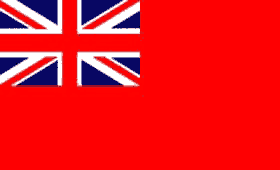Colonial Wars |
American Wars |
Link To This Page — Contact Us —
The Attack on Andrustown
July 18, 1778 at Andrustown, New York
 |
|||||||||||||||||||||
|
By 1776 Andrustown was tied religiously, culturally and economically to German Flatts. The minister from Fort Herkimer Church traveled the winding road into the hills to bring the word of God to such families as Grimm (Crim), Stauring (Staring) Osterhout, Frank, Moyer (Hoyer, Hawyer), Bell, and Lepper. These farm families lived in comfortable frame houses and stored grain in spacious barns and sheds. Andrustown men served in the militia that stopped the British and Iroquois at Oriskany in August 1777. Their fields produced wheat, hay, and livestock, some of which was destined for the Continental Army.
After the attacks on isolated settlements on the north side of the river, the citizens of Andrustown knew it was only a matter of time before they were attacked. So, they moved down into the valley where Fort Herkimer provided protection from Tory and Indian raiding parties. From time to time they returned to their farms to plant and harvest crops, sometimes with a military escort.
But on July 18, 1778 there was no escort and only a handful of residents working the fields. At the time Joseph Brant, who commanded a large raiding party in the area, ordered a troop of Tories and Indians to destroy Andrustown.
Andrustown was not a village where homes were concentrated in one area, but consisted of widely-separated farmsteads located in the valleys and on hillsides at the headwaters of what is now Fulmer Creek.
Jeptha R. Simms interviewed Adam Bell, son of Frederick Bell, Jr. in 1852. Adam, who was 80 years old at the time of the interview, was born in Andrustown in 1773. His family's recollections of the event were featured in Siims' Frontiersmen of New York.
"In July, 1778, Stauring, Leppard, Hawyer and the two Bells, father and son, went to Andreastown to secure some hay, prepared to stay several days. At this time Fred Bell, Sen., was an old man and a widower, but the wife of the younger Bell, with the wives of Stauring and Hawyer joined the party to cook for them,, and render such aid as they could. With the workers were two boys, one a son of Stauring, then in his teens, and Richard, a son of Fred. Bell Jun., some eight years of age. Just after breakfast on the morning of the 18th, when the men were engaged in their pursuit, a party of Indians with several tories, one of whom, some say Capt. Caldwell, led them, appeared suddenly in the settlement. The Bells, father and son, chanced to be near their dwelling, and as the Indians approached it, the latter who had often said he would not be taken alive, ran into the house and was shot through a window while in the act of taking down his gun from a pair of brackets. His father, who was arrested near the door, was ordered to catch a grey horse, owned by the Bells, which was in a field near and told that his life should be spared if he got it ; but as he was climbing a fence into the field, he was shot down and there scalped---the enemy, no doubt, fearing to trust him any distance from them.
"The firing at Bell's seasonably alarmed the three men at work some distance off, and they fled and escaped to Fort Herkimer. The enemy arrived at Stauring's dwelling too soon after the firing for any of the inmates to escape, but young Stauring in attempting to do so, was shot down at a little distance from the house and killed, while the Bell boy was made a prisoner. The women were preparing to make bread when the surprise came, and young Stauring had been providing oven-wood. No indignity was offered the women, if we except their being divested of several articles of clothing, ere they fled from this terrible scene. This war party as was subsequently learned, was sent thither by Brant , who was then in the vicinity of the Little lakes only a few miles distance, with a large force; being instructed by him before it left camp, not to kill or capture any women at that place ; and having secured what plunder they could, such as eatables, clothing, guns and three reeking scalps, the destructives reduced all the dwellings in the settlement to ashes, and with their little prisoner---who was compelled to witness the conflagaration of his birth place, in which was the body of his father, they soon retired.
"A party of soldiers from Fort Herkimer, accompanied by several citizens of that locality, went to Andreastown the day after the misfortunes and buried the remains of the elder Bell and young Stauring. The bones of Frederick Bell, Jun., were taken from the ashes and buried some time after."
Frontiersmen of New York - Simms - 1883
After the war these highland fields were again tilled and harvested, but the community of Andrustown was gone forever. Today a couple of historic markers note the location.
